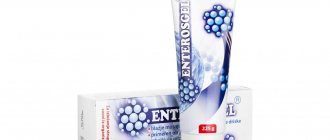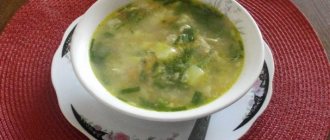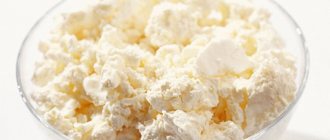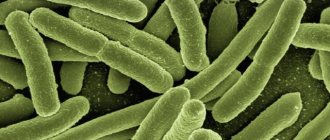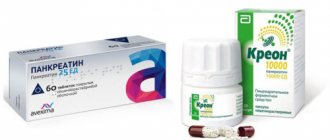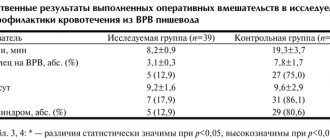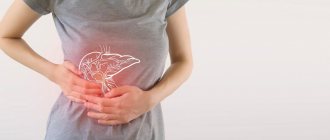Cause of pain in gastritis
Gastritis pain is spasmodic in nature
The pain that occurs with this disease most often begins due to spasms of the smooth muscles of the stomach walls. Another reason may be excessive stretching of its walls. The mucous membrane of the stomach with gastritis is always inflamed, any mechanical impact on it (when food comes in) causes pain.
With gastritis with high acidity, excess acid irritates the gastric mucosa, a prolonged reflex contraction of the pylorus occurs, this spasm causes pain. The secretion of acid increases when food enters the stomach, and the nerve receptors of the mucous membrane suffer from this effect.
Only a gastroenterologist or therapist can assess the condition of a patient with gastritis and prescribe adequate treatment.
He will conduct a gastroscopy, prescribe laboratory tests, and advise painkillers for gastritis. Self-medicating without knowing the etiology of the disease is very dangerous. Information about medications used to relieve pain symptoms of gastritis is offered for informational purposes only.
We highlight the main symptoms
The sensations accompanying heaviness in the stomach directly depend on the etiology of its occurrence.
Stomach discomfort after eating is often combined with other symptoms that may indicate the presence of gastrointestinal diseases. For example, heaviness and pain in the upper abdomen can be manifestations of gastritis and stomach ulcers. The likelihood of having these pathologies increases if these symptoms occur on an empty stomach, and after eating they weaken or disappear completely.
Heaviness and pain in the stomach can be localized in the area around the navel and occur 30-60 minutes after eating. Such phenomena rather indicate the presence of inflammatory pathology of the small intestine. They are often accompanied by diarrhea, weight loss, and deterioration in general well-being, which also indicates intoxication of the body.
The presence of bloating and flatulence is not only the result of drinking carbonated drinks, but can also indicate diseases associated with impaired digestion or absorption of nutrients. For example, these symptoms occur with celiac disease and lactose intolerance. In such cases, the patient is advised to follow a diet that excludes foods that cause symptoms.
Heaviness in the stomach and belching appear after eating poor-quality food or due to overeating, as well as with decreased motility of the gastrointestinal tract. An example of such a pathology is gastroesophageal reflux disease. In this case, the onset of symptoms is noted after eating, and the manifestations of the disease intensify in the lying position. Treatment includes diet therapy and the use of prokinetics - drugs that enhance gastric motility. Rumbling and flatulence, accompanied by cramps in the stomach, are a consequence of dysbacteriosis.
To avoid discomfort and progression of the disease, you first need to reconsider your food intake.
Heaviness and pain in the abdomen leads to a decrease in the quality of life, the inability to concentrate on important matters, decreased performance, decreased appetite, and weight loss.
You should immediately consult a doctor if the following symptoms occur due to severity:
- repeated vomiting;
- high body temperature;
- diarrhea, green or bloody stools;
- severe abdominal pain or frequent stomach cramps.
Types of painkillers used for gastritis
To relieve pain, medications from different pharmacological groups are used:
- Antispasmodics. They slow down cellular activity that causes muscle contractions and affect the cytoplasm of the cell.
- Anticholinergics. They act on the receptors of nerve endings, effectively neutralizing pain attacks.
- Antacids. They have a therapeutic effect by enveloping the inflamed mucous membrane of the stomach, reducing the destructive effect of hydrochloric acid - the cause of pain.
- Traditional medicine preparations. Gently but effectively, with prolonged use, they help relieve pain in the epigastric area.
When using all medications, you must carefully observe the dosage, duration of use, and take into account contraindications.
Ensisital
Mezim - an assistant in the digestive process
For those who experience digestive problems, Enzistal will be an excellent drug that can help improve this process. Enzistal contains not only pancreatin, but also hemicellulose, as well as bile components. That is why its effect is much better than simple Pancreatin. Experts recommend taking the drug:
- If you have problems digesting food caused by a lack of digestive enzymes
- With increased flatulence
- If you have problems with chewing function, which most often occurs in people with dentures, or if there is damage to the jaw or gums
- With a sedentary lifestyle, especially in bedridden patients
- Enzistal should be taken with caution in patients who:
- Have liver or kidney failure
- Jaundice
- Intestinal obstruction
In most of these cases, the attending physician may prohibit taking the drug altogether, since it can cause serious complications. As for complications after taking it, or rather side effects, the most common occurrences are:
- An allergic reaction that manifests itself as a rash on the skin, tearing
- Painful sensations in the abdominal area
- Nausea
- Diarrhea
- Irritation of the mucous membrane
If at least one of the above side effects occurs, you must immediately stop taking the drug. Enzsital is a drug with a very good effect, and also a fairly low price, which makes it accessible to most consumers.
Relieving stomach pain with anticholinergics
A gastroenterologist will help you prescribe an effective drug.
This group of drugs acts directly on the receptors of the nervous system, blocking them. An additional consequence of taking such medications is a decrease in mucosal secretion and an antispasmodic effect. This versatility makes anticholinergics indispensable painkillers for gastritis.
- Platifilin (analogue of palyufin). It is used in several dosage forms - tablets (1-3 times a day), drops (10 drops 2 times a day), injections (1-2 ml 2-3 times a day).
- Gangleron. In addition to an excellent analgesic effect, it helps to enhance the motor function of the stomach. You can take it in capsules (0.04 g before meals 3-4 times a day), or do subcutaneous or intravenous injections (2 ml of 1.5% solution 3 times a day).
- Gastrozem. Excellently reduces the excessive activity of the mucosal glands to produce acid, which causes pain. Taken twice a day, 25 mg for 2-3 weeks.
- Histodil. It has a similar effect by blocking cholinergic receptors. It is prescribed 0.2 g three times a day with meals, and a double dose of the drug is taken at night.
- Taking anticholinergics such as Aprofen, Atropine, Buscopan, Ganglefen, Difacil, Gastrocepin will be effective.
Festal
Festal refers to enzyme preparations, which in addition to pancreatin also contain hemicellulose and bovine bile powder. Hemicellulose helps the stomach break down fiber, but ox bile powder improves lipase activity, and as a result promotes normal absorption of fats and vitamins. Thanks to these properties of its constituent components, Festal is able to quickly improve digestion and have an effect on the entire digestive system. It is recommended to use Festal:
- For problems with the production of enzymes by the pancreas
- For diarrhea, but only if the main cause is not an intestinal infection
- For flatulence
- For irritable bowel syndrome
- Festal is also recommended to be taken to improve digestion, especially when a large amount of spicy, fatty, salty food has been eaten.
Some experts advise taking a Festal tablet before an ultrasound examination of the abdominal organs.
As for contraindications, it is prohibited to take Festal if:
- A person has acute pancreatitis
- Jaundice of any origin
- Hepatitis
- Intestinal obstruction
- There is individual intolerance to individual components of the drug
- Festal is prescribed with caution to patients who have a disease such as diabetes mellitus because the shell contains glucose and sucrose.
You can buy Festal at any pharmacy kiosk, and its price is quite affordable.
Antispasmodics for gastritis
The most famous and frequently used antispasmodic is the drug No-shpa and its cheaper analogue - Drotaverine. Its analgesic effect is carried out due to a component such as Isoquinoline, which acts on the smooth muscle cells of muscle tissue, relaxing them and relieving pain spasms. Drotaverine and Nosh-pu can be taken starting from childhood:
- 3-6 years – 20 mg (half a tablet) 2-3 times a day, no more than 120 mg per day.
- 6-12 years – 40 mg (1 tablet) 2-5 times a day, no more than 200 mg per day.
- 12 years and older – (2 tablets) 3-4 times a day, no more than 400 mg per day.
Contraindications to the use of No-shpa and Drotaverine may be:
Pancreatin
Creon. Release form - tablets
Pancreatin is one of the best drugs for improving digestion. In addition, the price of Pancreatin is quite low. So, a pack of 60 tablets can be bought for 70 rubles. This drug is indicated for use in several cases:
Medicines – antacids
These drugs are very effective in combating the cause of pain - excessive release of hydrochloric acid. Antacids bind the action of agents that damage the mucosa, and also reduce pain by relieving pyloric spasm.
- Maalox. Precisely balanced mixture of magnesium and aluminum hydroxide. It is used even in infants (4 times a day, 0.2 mg per kg of weight). For children under 12 years of age, the dose is 1 tablet 3-4 times a day, for adults this amount is doubled.
- Almagel. The combination of magnesium and aluminum is supplemented with D-sorbitol. The drug Almagel-A contains Anastezin; it is this modification of the drug that is preferable to use for pain syndrome. For children under 12 years of age, the dosage is 1 scoop, over 12 and for adults – 2 scoops.
- Phosphalugel. Consists of aluminum phosphate, pectin, gel-like algae extract agar-agar. Neutralizes pepsin and hydrochloric acid, has no contraindications even for children under one year old. Used in adults: 2 sachets 3-4 times a day.
All these drugs, in addition to being excellent pain relievers for gastritis, have an astringent, anti-inflammatory effect, and reduce the likelihood of spasms.
What are the causes of gastric stoppage?
A malfunction in the nervous system can lead to stomach failure.
- The cause of atony is prolonged emotional stress.
- A person does not eat properly, which leads to the fact that the normal amount of nutrients does not enter the body.
- The person suffered from a viral disease, and therefore the body lost a lot of strength.
- The man underwent an operation under anesthesia, as a result of which the body malfunctioned.
- Failure in the functioning of the nervous system, as a consequence of failure of the innervation of the organ.
- The presence of negative habits that deplete the body (a person smokes, often drinks alcohol, and so on).
- A child may suffer from gastric arrest as a result of a psychological factor. This can happen when trying to wean the baby, or when he is very worried.
How to make your stomach work
Herbal medicine helps restore stomach function.
Having identified the causes of the disease, the doctor may prescribe the following treatment:
- herbal medicine, during which it is necessary to prepare tinctures and decoctions at home;
- strict adherence to the prescribed diet;
- performing gymnastic exercises;
- treatment with drugs for nausea, take painkillers, as well as those that stimulate muscle function and set the right direction of peristalsis.
Treatment of atony with folk remedies includes the use of herbs, which include medicinal marshmallow or milk thistle seeds, as well as buckthorn bark and others. Herbal medicine makes it possible to influence the organ from all sides, which contributes to its recovery.
If your child’s stomach stops working, what needs to be done?
Traditional medicine, together with medications, will help restore the functioning of the stomach.
- If the baby has a stomach problem, this can be immediately determined, since there will be clear signs of this disease on the face.
- The baby will cry all the time.
- Pale skin, bad breath.
- No desire to eat.
- If a child develops this disease, it is necessary to immediately pay attention to his diet.
- After contacting a doctor, it is necessary to follow his instructions, and also admit the child to the hospital for examination.
It is worth remembering that children need to be treated differently than an adult, however, for all ages it is necessary to undergo both drug treatment and the use of traditional medicine so that the organ returns to normal as quickly as possible.
